Nigeria Whitening Skincare Products Market
Nigeria Whitening & Skincare Products Market: Culture, Safety and Opportunity in the African Skincare Market
Cultural Aesthetics & Social Drivers Behind Whitening Skincare Products in Nigeria
Historical Roots of Skin-Colour Capital
In Nigeria, the preference for lighter skin has deep roots. The legacy of colonial racial hierarchies plus media-glorified light skin have together shaped what sociologists call “skin colour capital” — the idea that lighter skin is a mark of beauty, modernity and social mobility. Recent surveys suggest that a majority of Nigerian women believe lighter skin can bring better employment and dating opportunities, underlining how whitening skincare products function as much more than cosmetics — they become social tools.
High Usage Rates Among Women
Reliable sources estimate that around 75 % of Nigerian women use skin-whitening products, placing Nigeria among the highest consumption markets globally. Naturenews.africa Women in the 25-40 age group and even younger (average starting age ~17) are using these skincare products for glowing skin and whitening effects, driven by social pressure, beauty ideals and peer influences.
The African Skincare Market Context
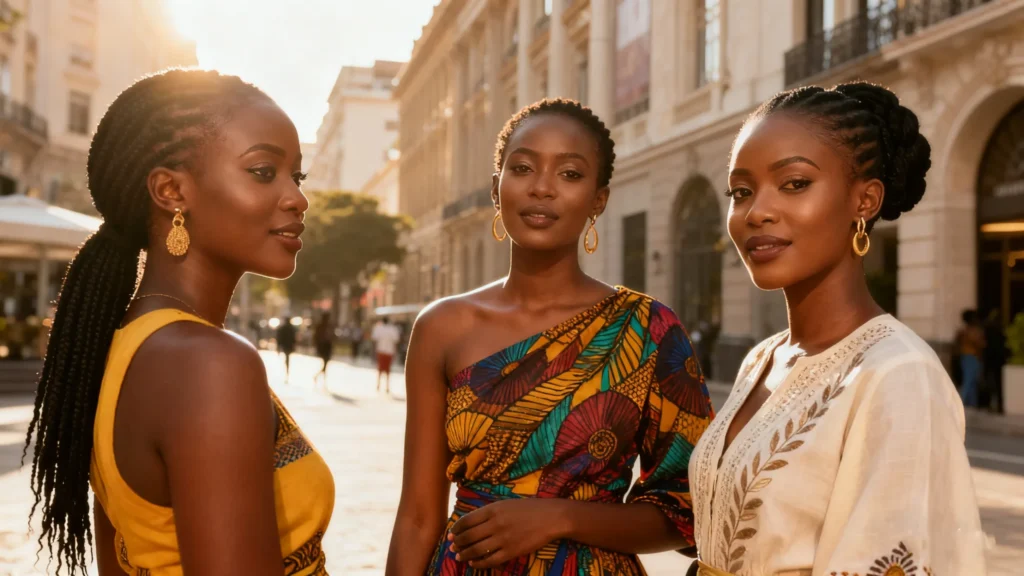
In the broader African skincare market, Nigeria stands out. As the most populous country in West Africa and with one of the most active whitening and skincare products markets, Nigeria’s dynamics help set trends for surrounding countries. The demand for safe and effective skincare products for glowing skin is large and growing.
Product Ecology & Safety Hazards in the Whitening Skincare Products Market
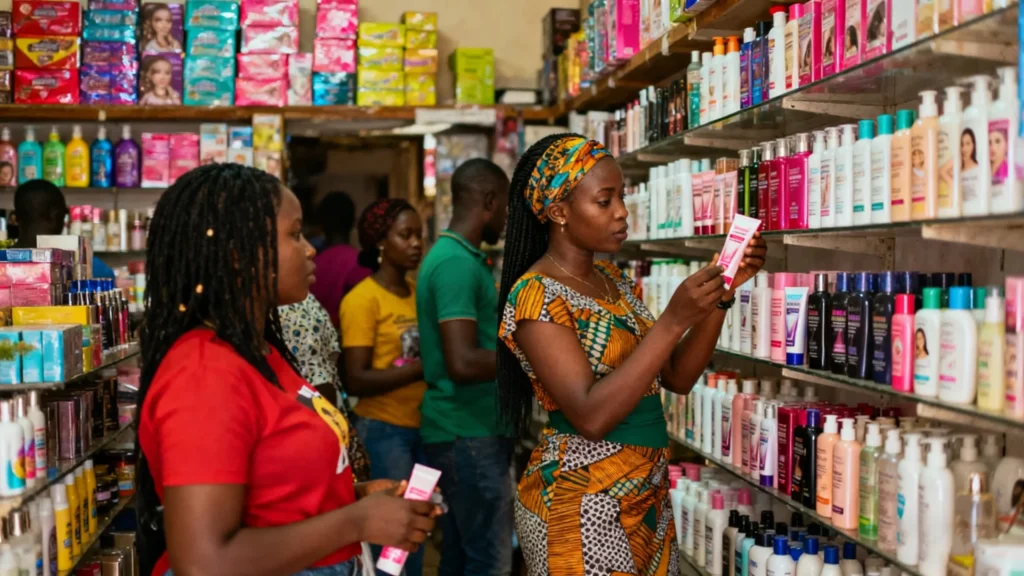
Multi-tiered Market Structure
The Nigerian whitening skincare products market is stratified:
At the high-end, international brands (e.g., L’Oréal, Lancôme) provide skincare products containing safer active ingredients like niacinamide, vitamin C and other brightening actives.
At the mass & low-income level, local and imported products from Asia and informal markets dominate. These often promise rapid whitening and glowing skin, but may contain prohibited or dangerous substances (mercury, high-dose steroids, hydroquinone) and be poorly regulated.
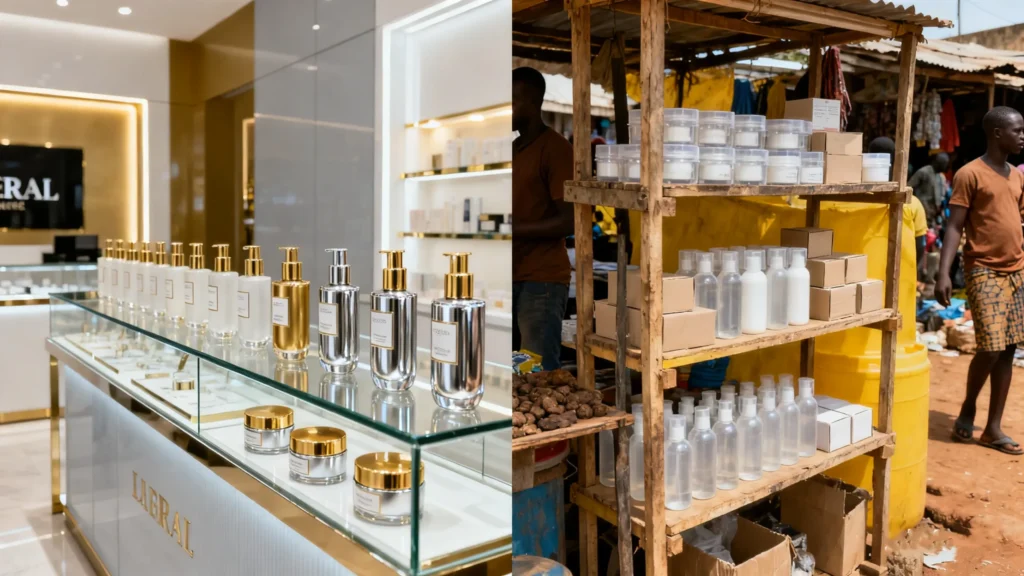
Safety Risks & Underground Sales Networks
Nigeria regulators and media investigations reveal serious issues: many products exceed mercury safety limits; unregistered “quick-whitening” creams and soaps are widely sold through informal channels (street markets, online). [wlrn.org] These pose health hazards (skin ulcers, kidney damage, hormonal imbalance) and undermine consumer trust. A survey of bleaching products in Nigerian university markets found many with no safety warning labels.
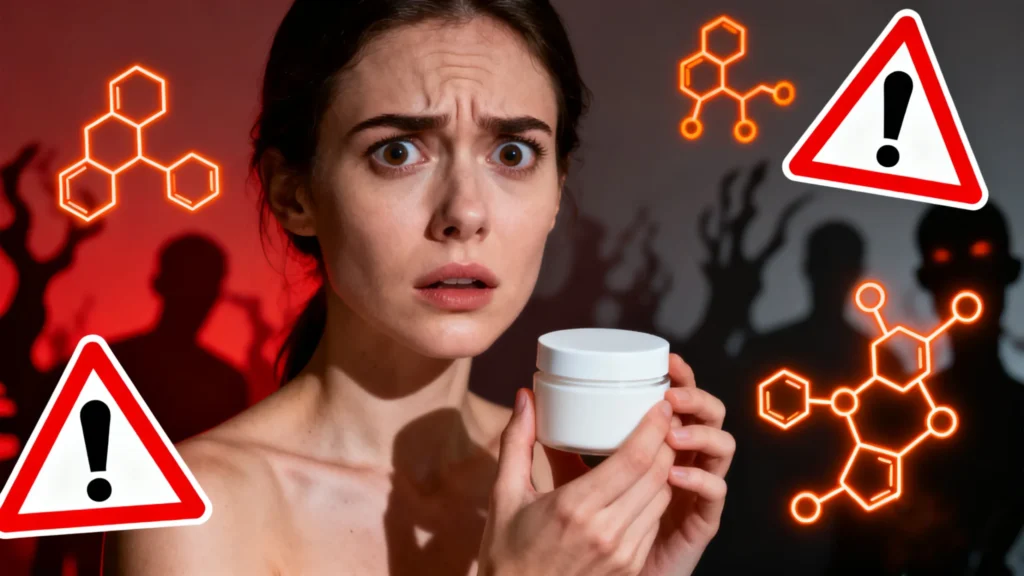
Demand for Safer Whitening & Glow Solutions
At the same time, there is growing consumer awareness and interest in safer alternatives: skincare products framed for “brightening”, “even tone”, “glow” rather than explicit “whitening”. Many premium skincare products for the African skincare market emphasise skin tone adjustment, anti-pigmentation and skincare products for glowing skin rather than drastic bleaching.
Regulation & Market Transformation in the African Skincare Market
Regulatory Tightening in Nigeria
Facing mounting health risks, the Nigerian government and regulatory agencies (such as National Agency for Food and Drug Administration and Control – NAFDAC) are reinforcing controls: enforcing labelling requirements, cracking down on illicit products, and restricting misleading promotional claims like “bleaching”. VEXX Skincare Reports show new laws under consideration in 2025 that would require clearer ingredient disclosure and restrict marketing language around whitening.
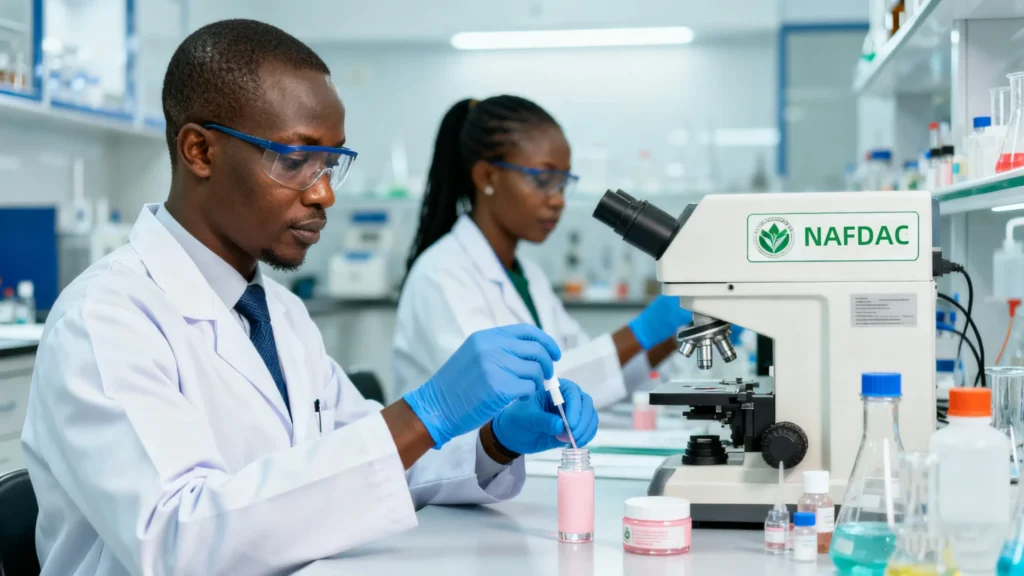
Shift to Natural Brightening & Glow in African Skincare Market
In response, local and international brands operating in Africa are adapting: emphasising natural, safe brightening agents (e.g., shea butter, turmeric, vitamin C), targeting “glowing skin” rather than extreme skin-lightening, and tailoring products for deeper-skin-tones. This shift aligns with consumer demand in the African skincare market and global trends of inclusive beauty.
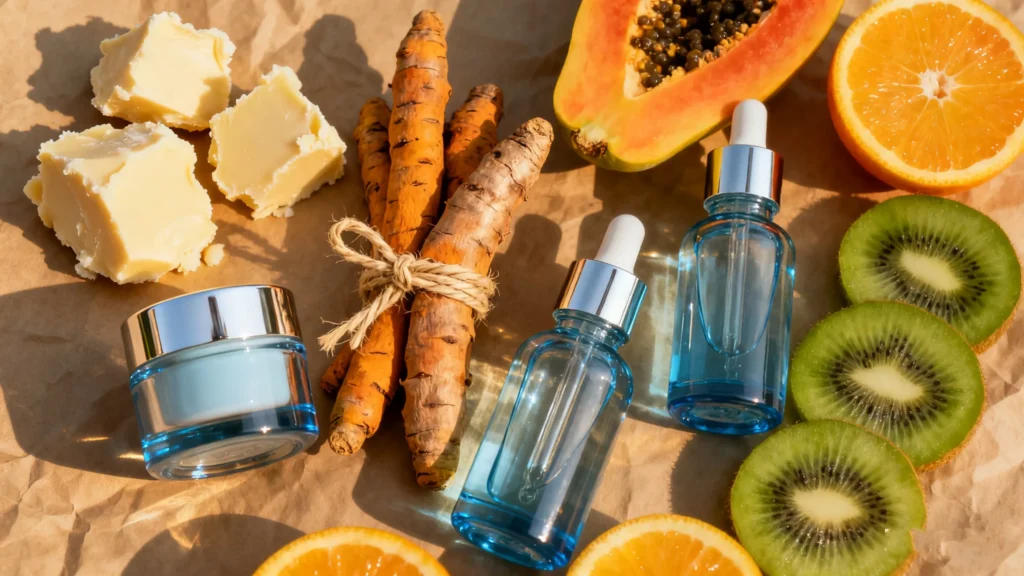
Opportunities for OEM/ODM & Export Collaboration
For skincare manufacturers and suppliers targeting the African market, especially Nigeria, this transformation signals opportunities: companies that can offer safe, compliant formulations, branded for “skincare products for glowing skin” or “whitening skincare products” (sensitively), and tailored for local cultural aesthetics can gain strong traction. The market is large, evolving, and responsive to trust and safety.
Strategic Implications for Brands & Exporters in Nigeria’s Whitening Skincare Products Market
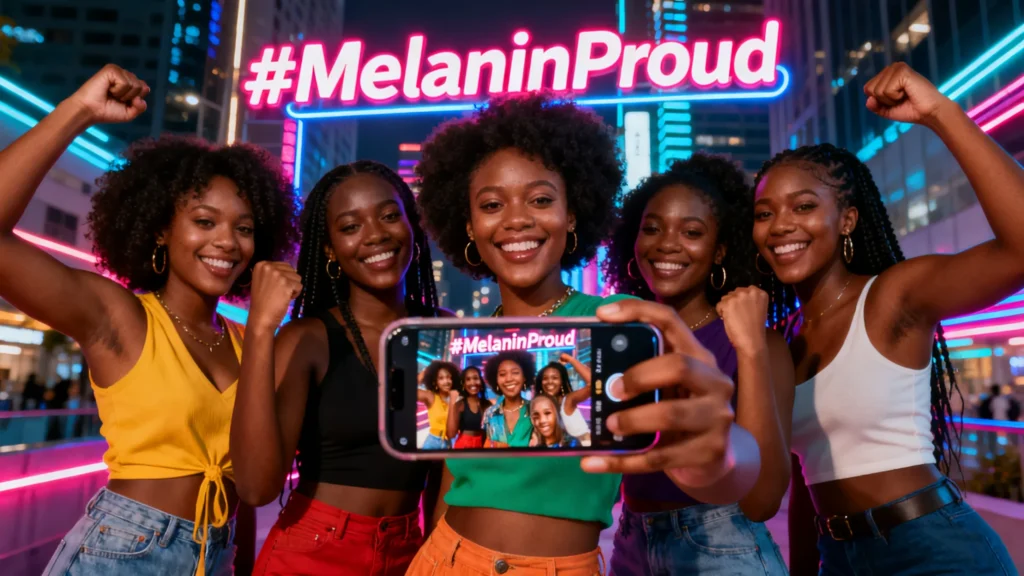
Understand Local Aesthetics & Consumer Insight
Brands entering the Nigerian market should respect the cultural dynamics — the aspiration for lighter, even-skin tone and glowing skin, but also the growing sensitivity to safety and naturalness. Packaging, marketing language and product positioning must align: emphasise “brightening”, “tone-adjustment”, “healthy glow”, “skincare products for glowing skin” rather than aggressive “bleaching”.
Emphasise Safety, Compliance & Ingredient Transparency
Given the prevalence of unsafe products in Nigeria, brands that emphasise transparency (ingredient lists, safety testing, local regulatory compliance) build trust. Use of safe actives (vitamin C, niacinamide, licorice extract) and avoidance of banned substances (mercury, unauthorized steroids) is critical.
Tailor to the African Skincare Market & Distribution Landscape
Nigeria’s distribution ecosystem includes formal retail (shopping malls, beauty boutiques) and large informal channels (street markets, social-commerce). Brands must adapt: premium lines for formal retail, accessible formats for mass market, and robust after-sales/education support. Social media influencers remain powerful drivers of demand.
OEM/ODM Collaboration as Growth Lever
For global skincare manufacturers seeking African market penetration, partnering with established OEM/ODM partners who understand local needs and regulatory environment is a smart pathway. Customised formulations for the African skincare market (e.g., for deeper-skin tones, hot/humid climate, local aesthetic cues) help brands differentiate and scale.
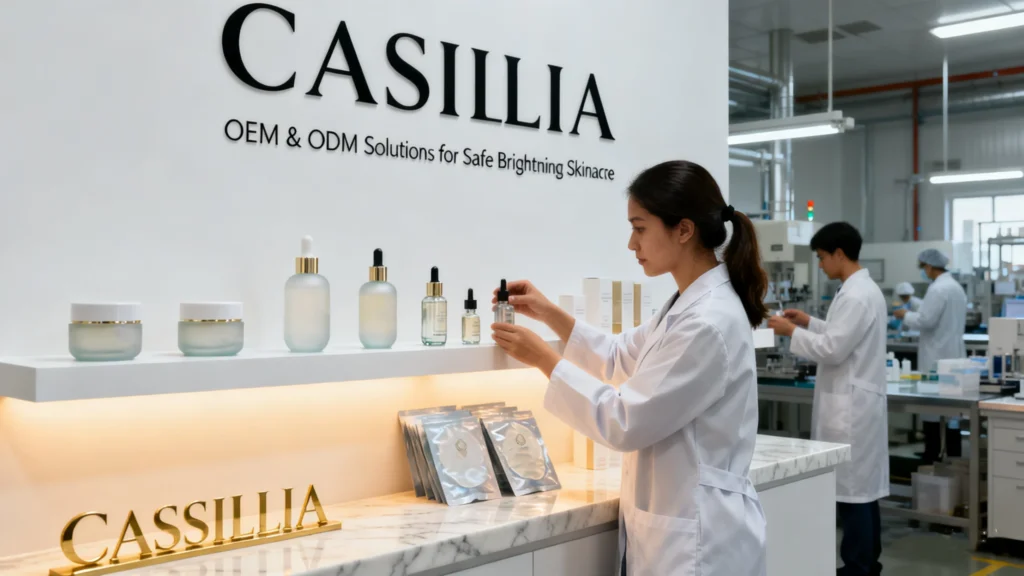
Conclusion
The whitening skincare products market in Nigeria exemplifies the complexity and opportunity of the African skincare market. On one hand, deeply rooted cultural aesthetics and social drivers drive a large and active demand for whitening and brightening skincare products. On the other hand, the prevalence of unsafe formulations and evolving regulation mean that brand risk is high — but so is the reward for those who get it right. By focusing on skincare products, whitening skincare products (sensitively framed) and skincare products for glowing skin, and by aligning with local consumer insight, ensuring safety and regulatory compliance, and choosing appropriate channels, brands can tap a market with enormous potential.
At CASSILLIA, we draw on 23 years of manufacturing experience and 10 years of export in the bath & body sector, specialising in OEM/ODM solutions. We offer customised formulations, private-label support and full service including market research and social-media trend analysis for global markets — including Africa and specifically Nigeria. If you’re exploring how to enter or expand in Nigeria’s whitening or brightening skincare market, let’s talk about how we can help you design safe, effective and culturally-aligned products for the African skincare market.
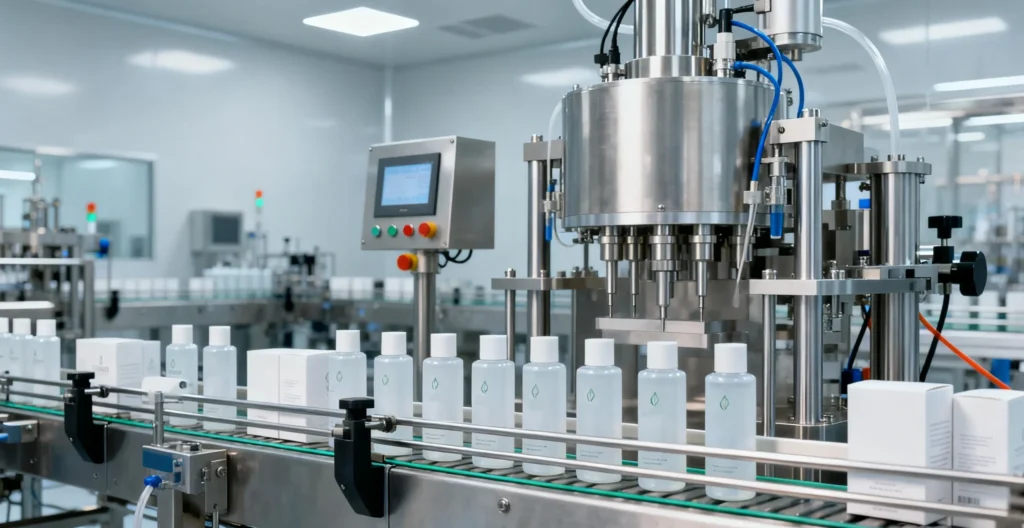
Table of Contents

Chinese Top Skin Care Supplier
Building 8, Huanya Industrial Park, Taiping Town, Conghua District, Guangzhou, China
Tel: +86 153 3808 5627
E-mail: infocassillia@gmail.com
quick links
Products
Why CASSILLIA
- OEM/ODM Customization
- Market-Focused
- Reliable Supply Chain
- Competitive Pricing
- One-Stop Solution
- Global Trade Show Experience
- 23 Years of Manufacturing Expertise

